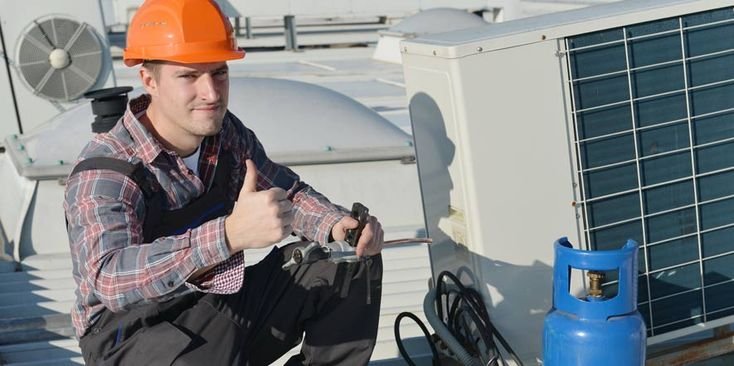
The field of refrigeration and air conditioning offers a range of career opportunities, from maintaining residential HVAC systems to managing complex commercial refrigeration units. As the demand for skilled professionals in this industry grows, it’s crucial to prepare effectively to secure a successful career. One of the best ways to do this is through specialized training. Here’s a comprehensive guide on how to prepare for a career in refrigeration, focusing on air conditioning and refrigeration courses.
1. Understand the Industry
Before diving into training, it’s important to understand what a career in refrigeration entails. This industry involves designing, installing, and maintaining systems that control temperature and humidity. Refrigeration professionals work on a variety of systems, including those found in homes, commercial buildings, and industrial settings. Familiarizing yourself with these aspects will help you choose the right educational path.
2. Research Air Conditioning and Refrigeration Courses
The foundation of a successful career in refrigeration often starts with formal education. Air conditioning and refrigeration courses provide the essential knowledge and skills needed for the field. Look for programs that cover:
- Fundamentals of Thermodynamics: Understanding the principles of heat transfer and refrigeration cycles.
- Electrical Systems: Learning about the electrical components and wiring of HVAC systems.
- Refrigerant Handling: Knowledge of different refrigerants and their handling protocols.
- System Installation and Maintenance: Practical skills in installing, repairing, and maintaining refrigeration and air conditioning systems.
3. Choose Accredited Programs
When selecting a course, ensure it is accredited by a recognized body. Accreditation ensures that the program meets industry standards and provides quality education. Look for accreditation from organizations such as:
- The Partnership for Air-Conditioning, Heating, and Refrigeration Accreditation (PAHRA)
- The National Center for Construction Education and Research (NCCER)
Accredited programs often offer better job prospects and may be preferred by employers.
4. Consider Hands-On Training
While theoretical knowledge is crucial, hands-on experience is equally important. Many air conditioning and refrigeration courses include practical training through labs or apprenticeships. This hands-on approach helps you gain real-world experience and prepares you for the challenges you may face on the job.
5. Prepare for Certification
Certification is often required or highly recommended for professionals in the refrigeration industry. Check the certification requirements for your region or country. Common certifications include:
- EPA Section 608 Certification: Required for handling refrigerants in the United States.
- HVAC Excellence Certification: Validates your skills and knowledge in HVAC systems.
- Refrigeration Service Engineers Society (RSES) Certification: Offers various levels of certification for refrigeration professionals.
Ensure your course prepares you for these certifications, as they can enhance your employability and demonstrate your expertise to potential employers.
6. Stay Updated with Industry Trends
The refrigeration and air conditioning industry is continually evolving with new technologies and regulations. Stay informed about the latest advancements, such as energy-efficient systems and environmental regulations. Subscribe to industry journals, attend workshops, and join professional associations to keep your knowledge current.
7. Build a Strong Network
Networking can significantly impact your career prospects. Connect with professionals in the field through industry events, social media, and local trade associations. Building a network can provide job leads, mentorship, and valuable insights into the industry.
8. Prepare for a Job Search
As you near the completion of your courses, start preparing for your job search. Create a strong resume highlighting your education, hands-on experience, and certifications. Practice your interview skills and be ready to discuss your practical experiences and problem-solving abilities.
9. Explore Specializations
Refrigeration and air conditioning cover a broad range of specializations, including commercial refrigeration, residential HVAC, and industrial systems. Consider focusing on a niche area that interests you or aligns with market demand. Specializing can enhance your career opportunities and potentially lead to higher earning potential.
10. Continue Your Education
The learning doesn’t stop once you’ve completed your initial training. Consider pursuing additional courses or certifications to advance your career. Continuous education will help you stay competitive in the field and adapt to new technologies and industry standards.
Conclusion
Preparing for a career in refrigeration involves more than just completing air conditioning and refrigeration courses. It requires a combination of formal education, hands-on experience, certification, and ongoing professional development. By following these steps, you can position yourself for a successful and rewarding career in this essential and ever-evolving industry.